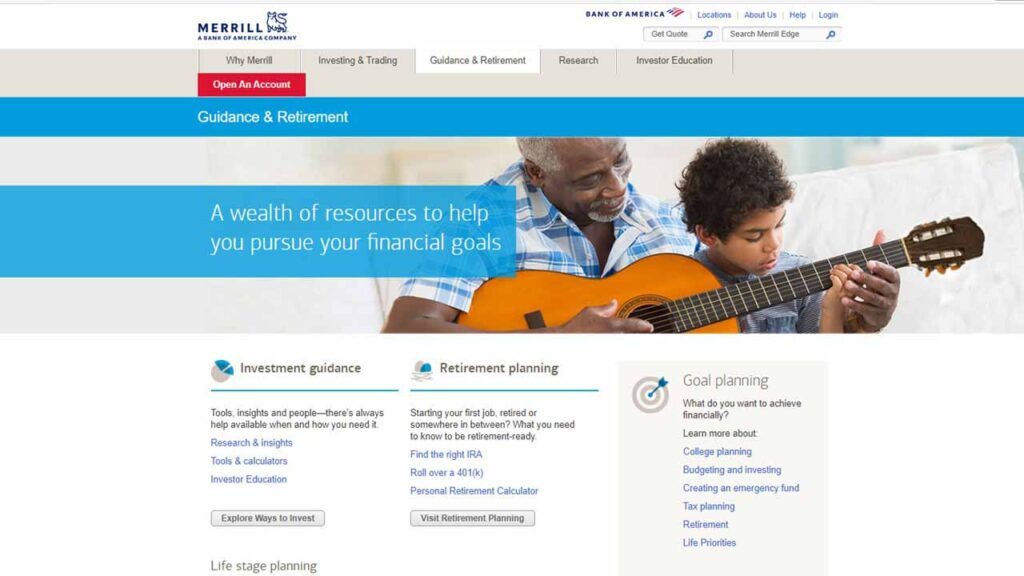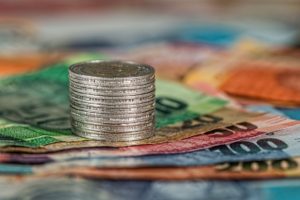
“I personally recommend having a year’s worth of savings in the bank!”
Note. Like my Net Worth piece, the subject matter of this blog post is not new. It has been known for years by those who’ve learned about it in their families, learned about its concepts in business school, or have discovered it on their own. It’s a discussion from my personal perspective which I think is worth visiting. Also, while this is a ‘money’ topic, I’m discussing it from a ‘scholarly’ perspective. I’m not rendering financial advice where I’m telling readers what they should do. In the spirit of the first principle of my blog, Creating Ecosystems of Success, I’m simply introducing a concept and discussing why it’s important for the lay person; so they can make their own life choices.
* * *
Reflecting on my youth, both of my parents were savers and they showed that in their own unique ways. As described in my piece regarding budgeting, my Auntie Adele was quite the budgeter and she was always outspoken (and vigilant) about that. All of the pieces were there in my mental periphery, though it wouldn’t be until my adult years that I’d figure out how every piece in terms of one’s personal finances ‘fit together’ as I’ll describe later. I’ve learned that you can hear about something, but it’s not until doing it yourself that you actually understand it. This is why Rich Dad Poor Dad author, Robert Kiyosaki, frequently referenced the “Cone of Learning” in his books.
Though I intuitively knew what ‘emergency funds’ were before taking Dave Ramsey’s “Financial Peace University (FPU)“, I got a much clearer picture of what they were and why they’re important. I’ve covered many other important aspects of personal finance here on my blogging platform, but after a potential collaborator emailed me recently about linking their online resources to some of my content, I realized that I never covered emergency funds. It’s a topic that is timeless in terms of importance and is especially relevant with my recently purchasing a new car. As such, I think I’ll use that a jumping off point for this piece.
If you don’t know, I’m a YouTube content creator now and have four channels. My original Big Discussions76 channel now covers several topics, financial literacy/money being chief among them. I recently shot a video discussing my decision to acquire a vehicle after going without one for eight years. You can watch that video in the link below. If you do, please kindly give a like, share it in your network and subscribe to my channel.
I also wrote two pieces discussing why I decided to go without car ownership. In those pieces and in my YouTube video, I communicate that one of the checked boxes for rejoining the car ownership club was having a fully funded emergency fund. In FPU, Dave Ramsey describes a fully funded emergency fund as one that contains three to six months of savings based upon the critical items on your personal budget. That’s actually a little more on the liberal side. Some people, like one of my mentors, are more conservative and believe that one (or a couple) should have a year’s worth of savings in the bank! If your personal finances are highly leveraged credit-wise and you’re living paycheck to paycheck, this may all sound like a gargantuan task, but from personal experience, I can assure you that it can be done.
I can’t lie though, in that it does take a great deal of determination, grit, and delayed gratification to create a fully funded emergency fund. Spiritual folks would also say that it takes a great deal prayer. In either case, you must know what your ‘why’ is, or your motivation. That will help keep you going even when things feel lonely or even get hard. What was my motivation for creating an emergency fund? Let us go back to car ownership.
“Cars are built to breakdown,” said Mr. Cholley Gray of the former Gray’s Auto in my hometown of Buffalo, NY. In my trips back to Buffalo from Charlotte, NC, Mr. Gray performed most of the repairs on my first car, a white 1990 Subaru Legacy which was passed down from my mother to my brother, and then to me. Having been through seven long years of Buffalo winters, I inherited the car right around the time when rust started taking hold of many of its parts and wear and tear had set in. I went through numerous transaxles when I owned that car. Each was $150-$200 each time.
The biggest and probably the costliest repair was the “rack and pinion” which went out on me down in Charlotte, NC. For those unfamiliar with the inner workings of automobiles, the rack and pinion is a part of the power steering system. When the piping rusted out that fateful day, the car became extremely difficult to steer and it made what I would call a howling or a screeching sound like a saw cutting through wood. One of my professors and I investigated the systems of the car in his driveway and saw that it was literally bleeding the pink power steering fluid. It was a fixable repair, which came at a price of $850. As an undergraduate I was mortified by the price in addition to the sound the car was making. Fortunately, my father was there to send me the money, just as he was there to purchase the car for me from my brother and pay for my insurance.
My burgundy 1996 Saturn SL2, which I purchased in Ann Arbor, Michigan while in graduate school, had two costly repairs within the final six months of grad school. This led me to bow out of the car ownership club in the summer of 2012. One night near my job, one of the front wheels rusted out completely. That is the entire support stabilizing the wheel needed to be replaced. That costed $1,200 at Meineke which was my entire federal income tax return that year. Only months later, the cable attached to the manual transmission broke while I was driving. Fortunately, I wasn’t on the expressway and was able to pull off onto a side street without being harmed. That repair also came out at $1,200 which was the final straw for me. Mentally, I’d already prepared for getting rid of the car, like a loved one on life support.
Probably the most painful repair though, was around 2010 when the radiator cracked in the scorching Northern Virginia summer heat. Not only was that repair $500, but the mechanic, an Asian guy named Steve, bitched at me and jeered me about getting a new car when I picked it up. The nerve of that guy, right? After all, I paid him for his service. My girlfriend at that time pretty much agreed with him on the spot, making a bitter afternoon more bitter. At that time, I was temporarily living with her while closing on my condo unit. I planned to give her something for that month towards the rent, but because of the transmission going out, I couldn’t pay her, which she secretly held against me and sprung it on me during one of our many future arguments.
If it sounds petty for me to tell this side story about my ex, rest assured knowing that there’s a grander purpose. Sometimes in life we set out with good intentions and unexpected things happen affecting the entire mosaic. If we’re not prepared, domino effects can result making situations exponentially worse. I’m saying all of this to say that life is so much better when you have an emergency fund, a stash of money saved just in case something goes bad. It literally gives you peace of mind. Everything is just different because you’re not constantly worrying about something going wrong or breaking. When something does break, wears out, or needs to be replaced, you’re not scrambling for money or to take out loans. It’s truly a different way of living. “Murphy leaves you alone,” as Dave Ramsey jokingly says.
Having an emergency fund also allows you to potentially help those around you. Going back to the girlfriend described above, there was another instance where she needed to get new tires on her car to pass the state inspection. By the way, she was educated and had a career of her own. That said, I was still expected to take care of her in certain ways. This is a prevalent expectation and I’m not disputing it as I understand the psychology of it more now. It’s just something for some men reading this to be cognizant of. There is more I could say about it, but that’s a separate discussion.
At that time, I didn’t have a fully funded emergency fund and was unable to safely pull the $300-$400 out of my savings to pay for her new tires. I’ve often wondered if she would have been more ‘human’ to me throughout that relationship if I could have done more for her financially. Based upon what I know now, the answer is yes.
Going back to when I discussed ‘safely’ pulling the money out of my savings, let me unpack that a little bit more. A decision you must make when someone comes to you for help, or announces that they’re in distress, is whether or not you can afford to help them. Put another way, will you potentially later need the money said person is asking you for? If so, you may not be able to help them because if you do, you may be stuck asking someone else for help later on yourself, another domino effect.
The other thing is that after being both the lender and lendee, I agree wholeheartedly with Dave Ramsey in terms of loaning money. I don’t believe in loaning money anymore. If someone comes to me these days for help, I assess whether or not I have the money to give. If I can’t give the full amount, I give what I can and don’t expect anything back, as loans put a mutual strain on personal relationships. From a spiritual standpoint, Proverbs 22:7 reads, “The rich rule over the poor and the borrower is slave to the lender.” It’s something for everyone to ponder, especially with friends and relatives.
I’m going to close with two more points. The first of which is that while I discussed emergency funds in the context of automobile ownership in this piece, it reaches into many other areas. In the last five years, I’ve lost a cell phone, I’ve had to replace my refrigerator, and the toilet in my home.
I’ve also refinanced my mortgage a couple of times. While not an emergency per se, these have involved me using some of my savings to help the transactions go through. Speaking of savings and mortgages, if you can’t purchase your home outright with cash, one of the key things lenders will be looking for when deciding to qualify you for a mortgage, is your history of saving money. Likewise, the more you have saved, the better the loan terms you’ll get if you qualify. I’ll also jokingly state here that me and the ex-girlfriend discussed above got into a standoff over this point one night. My father and I had also talked about this before. I was factually right, but sometimes being right in relationships just causes more drama and resentment.

My final point involves retirements savings. Some individuals have started saving in their retirement accounts which is absolutely the right thing to do as employees. Unfortunately, when adverse events occur, some people must use credit cards, loans or raid their retirement savings because they don’t have any other ‘liquid’ cash available. Raiding your retirement savings involves a tax penalty and unplugs the money from ‘compounding’. An emergency fund thus provides a layer of protection for your retirement nest egg, and that’s an important though not widely understood reality about retirement savings.
With all of this being said, a fully funded emergency fund, while an important piece of your financial health, isn’t an ultimate layer of protection. There may be bigger adverse financial events looming and that’s what your insurances are for (health, car, homeowner, renters, etc.). That’s a separate topic all in itself, but one that everyone should also consider.
So, in summary, emergency funds are important because:
• They improve your overall peace of mind, health and quality of life just by relieving financial stress.
• They allow you to absorb and recover from negative financial events (but also remember that insurances are important).
• They protect your other savings and investments and allow you to easily navigate transactions like home purchases and refinances.
• They allow you help those around you (if you can afford to).
In closing, keep in mind that your emergency fund is not meant to be the investment of the century, just a layer of protection against life, and it acts as insurance in a way. Though it may be sitting in a savings account not making much interest, you want to be able to get to it quickly in case of an emergency (not for frivolous spending). There are savings accounts that can earn more money for you such as a money market account, but again that is not the main point of all this. The point is to protect you and your investments.
Thank you for taking the time to read this post. As of now I’ve written several financial pieces on my blogging platform and many of them are listed on the bottom of the Big Word Blog Site’s home page. I’ve also published numerous shorter money and business-related pieces with guests and contributing writers. You can find those by simply searching my categories menu on the home page or by typing “money”, “finance” or “business” into the search box at the bottom of the home page. If you read something you like, please leave a comment and share in your network via email or in your preferred social media space.
To receive all of the most up to date content from the Big Words Blog Site, subscribe using the subscription box in the right-hand column in this post and throughout the site, or by adding the link to my RSS feed to your feedreader. Please check out any of my four Big Discussions76 YouTube channels. Lastly, follow me on Twitter at @BWArePowerful, on Instagram at @anwaryusef76, and at the Big Words Blog Site Facebook page. While my main areas of focus are Education, STEM and Financial Literacy, there are other blogs/sites I endorse which can be found on that particular page of my site.


